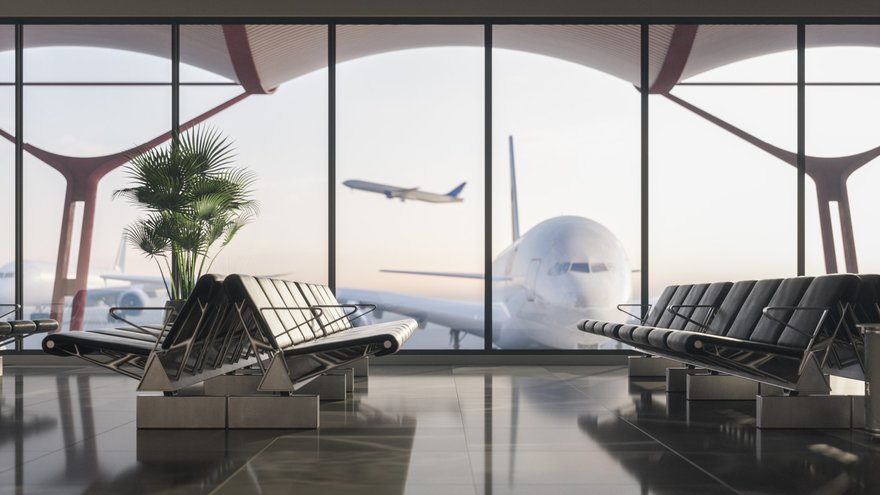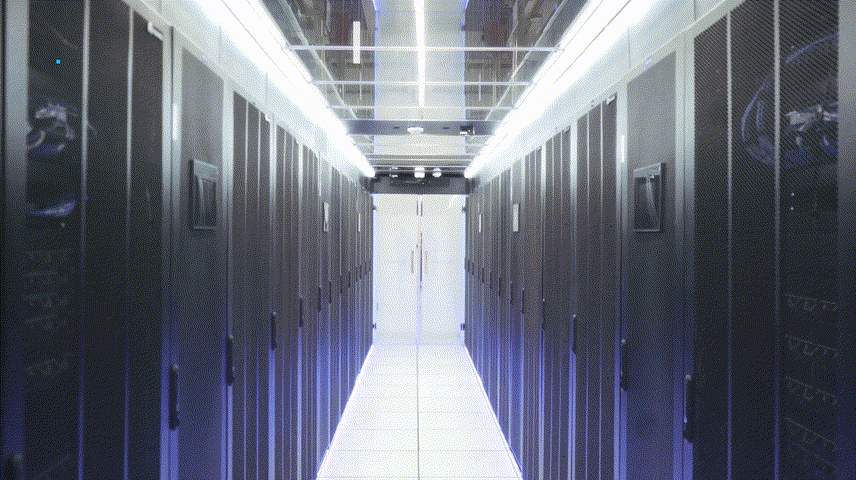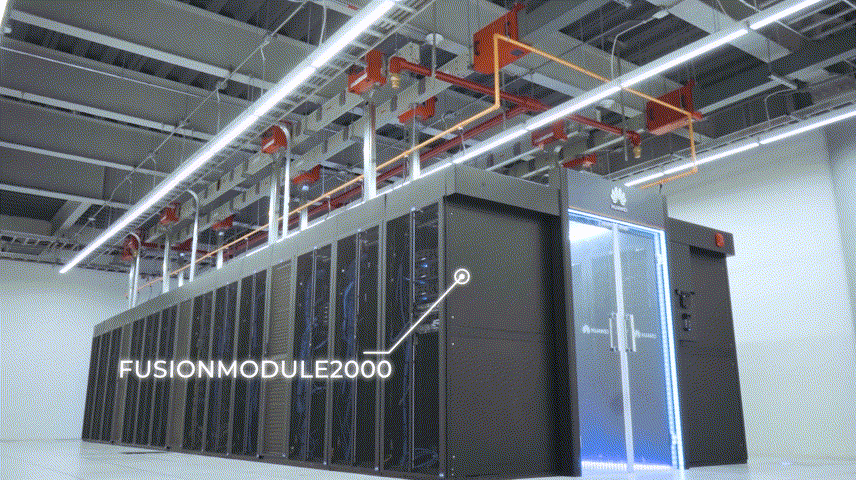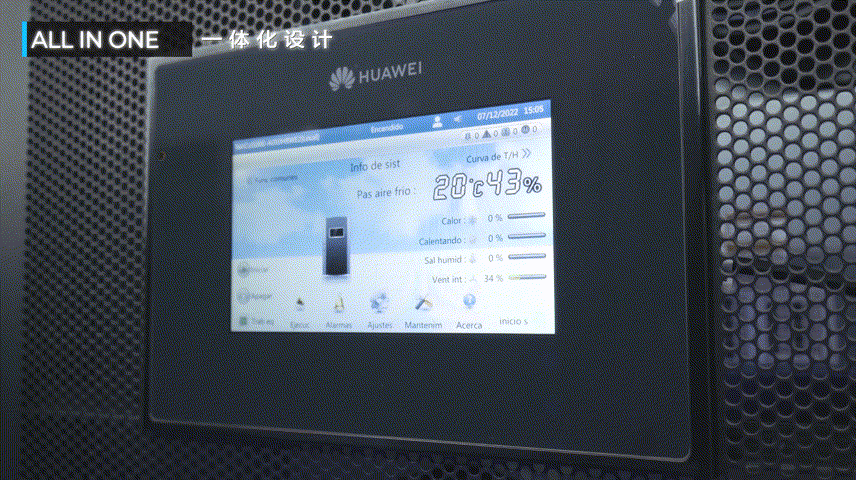Mexico City, an ancient metropolis steeped in nearly 700 years of history, is now bursting with new vitality. As one of the largest cities in the world, Mexico City is renowned for its distinctive culture, cuisine, and hospitality. However, there is much more to the city than meets the eye. In recent years, Mexico City has demonstrated impressive innovation and progress in the field of science and technology.
As an integral part of this vibrant city, Felipe Ángeles International Airport (hereinafter referred as AIFA) recently opened its doors, emerging as one of the most important transportation hubs in Mexico.
The newly built AIFA serves the air transportation needs of Mexico City and the surrounding areas, providing passengers with a safe, convenient, and efficient air travel experience.
Data center construction is an essential part of AIFA. In light of growing passenger demands and ever-rising aviation safety standards, AIFA has deployed Huawei's smart modular data center solution, FusionModule2000, to build a safe and reliable data center.
Huawei smart modular data center solution: A trailblazer in the data center sector
The FusionModule2000 is a one-stop solution for small and medium-sized data centers. It features simplicity and strong building adaptability. Compared with traditional solutions, the FusionModule2000 lowers the requirements for deployment conditions such as room height, enabling enterprises to better deploy on demand and expand capacity flexibly.
The AIFA data center project was delivered in only three months, a 30 percent reduction in delivery time as compared to traditional solutions. With a 60 percent less battery system footprint, the data center reduces OPEX (Operating Expense) by 30 percent and PUE (Power Utilization Effectiveness) by 25 percent.
Green and simplified, building a low-carbon data center
The FusionModule2000 adopts a modular design and integrates the cooling system, cabinets, aisles, cabling system, and monitoring system into one module. The modular architecture simplifies installation, accelerates deployment, and reduces the overall footprint.
In a traditional data center without cold and hot aisle containment, cold and hot air flows inside the data center are in disorder, and partial hot spots may occur. The AIFA project employs an in-row cooling system equipped with CAC (cold aisle containment) and in-row precision air conditioners to improve the cooling efficiency by achieving efficient close-coupled cooling for IT equipment and curbing partial hot spots.
Compared with traditional solutions, the FusionModule2000 reduces PUE by 25 percent, achieving green and low-carbon operation of the data center.
High security and reliability, zero service interruption
Providing both stable and strong power for its continuous operation, the power system is to a data center what a heart is to a human being. The AIFA data center deploys Huawei's ultra-high-density modular UPSs, in which redundancy design for key components is adopted. A single point of failure occurring in any module will not affect the normal operation of other modules.
Meanwhile, Huawei's UPSs, with the aid of AI technologies, transform passive maintenance to proactive and predictive maintenance. AI approaches are facilitating the UPSs by monitoring the service life of fans and capacitors in real time and generating warnings for component replacement in advance, so that fault risks are reduced and the overall reliability of the system is enhanced.
Huawei's smart lithium battery solution, SmartLi, uses LFP (ferrous lithium phosphate) cells of high reliability and a three-level battery management system (BMS) to protect the batteries from the pack level, cabinet level, and to the system level. Each battery is equipped with a pack-level fire extinguisher to ensure the safe and reliable operation of the battery system.
Intelligent O&M, load-shedding equipment room
Huawei's smart modular data center solution is provided with the NetEco intelligent management system, which detects key information in data centers such as temperature and humidity, water leakage, UPS, battery, and air conditioner running parameters in real time, displays the equipment room running status through 3D visualization, and provides device exception alarms and fault impact analysis to achieve all-round real-time monitoring, therefore greatly simplifying manual O&M.
Undoubtedly, the cooperation between AIFA and Huawei Digital Power has served as a role model for the digital transformation of airports around the globe. In this digital era, airports play an increasingly important role as bridges connecting the entire planet.
Digital transformation can help airports better cope with growing security challenges and passenger flow pressure, and improve operational efficiency and service quality. Huawei's smart modular data center solution is a powerful tool that not only helps airports during this digital transformation process, but also ensures smart and stable operations.
Going forward, Huawei Digital Power, together with AIFA, would like to explore more possibilities of smart airports and promote their development, boosting the progress of the digital era by setting a new benchmark for the global aviation industry.
Furthermore, Huawei yearns to see more airports around the globe go digital, accelerating innovation and development of the aviation industry and blazing a new trail for digital aviation.
More from Huawei
-

Sponsored Huawei enterprise-class WiFi 7: The world's fastest?
With over 13 Gbps real-world rate, Huawei is redefining the wireless campus network experience
-

Sponsored "In Europe, for Europe": Huawei Cloud is accelerating intelligence
Creating and fostering partnerships in Europe, for Europe
-

Sponsored Make any room a data center with Huawei's FusionModule2000
A successful use case for Indonesian telecoms company Matrix NAP Info





